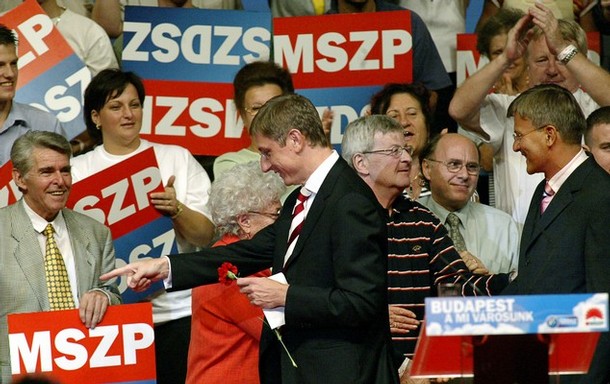Hungary's coalition finally splits
 Budapest - Hungary's ruling coalition held its final cabinet session Wednesday as the junior Alliance of Free Democrats (SZDSZ) stuck to its decision to leave government after a disagreement over the speed of economic reforms.
Budapest - Hungary's ruling coalition held its final cabinet session Wednesday as the junior Alliance of Free Democrats (SZDSZ) stuck to its decision to leave government after a disagreement over the speed of economic reforms.
The SZDSZ's departure leaves the Hungarian Socialist Party to govern without a majority.
Analysts say the hamstrung government will struggle to pass legislation and that further reforms necessary to cut the budget deficit and eventually adopt the euro are dead in the water.
The SZDSZ announced it would quit in late March after the Socialists backtracked on plans to introduce private capital into the health insurance system, effectively ending the reform path embarked upon two years previously.
Delegates from the party then rubber-stamped the decision Sunday, prompting Prime Minister Ferenc Gyurcsany to appoint seven new cabinet ministers Monday.
While the junior party only controlled three ministries, Gyurcsany took the opportunity to introduce sweeping changes that analysts say helped strengthen his position within the party.
"Gyurcsany has managed to ward off the possibility that the Socialists could pull out from behind him," Istvan Stumpf, head of political analysis institute the Szazadveg Foundation told InfoRadio.
The looming minority government prompted opposition parties to call for a vote of confidence in Gyurcsany. However, Gyurcsany - who survived a confidence vote in 2006 following the leak of a tape on which he admitted lying about the economy - rejected the request.
Gyurcsany abandoned the reforms after losing a referendum on healthcare charges and tuition fees, a defeat that was the last straw for a party struggling with appalling popularity ratings brought on by the unpopular austerity measures.
While the reforms cut the budget deficit from a massive 9.2 per cent of gross domestic product (GDP) in 2006 to 5.5 per cent in 2007, they also forced up inflation and slashed growth.
Gyurcsany has promised to stick to plans to cut the deficit to 3.2 per cent by 2009, but analysts agree that this may now not happen as the government attempts to rule on its own and also regain popularity by spending before the 2010 general elections. (dpa)